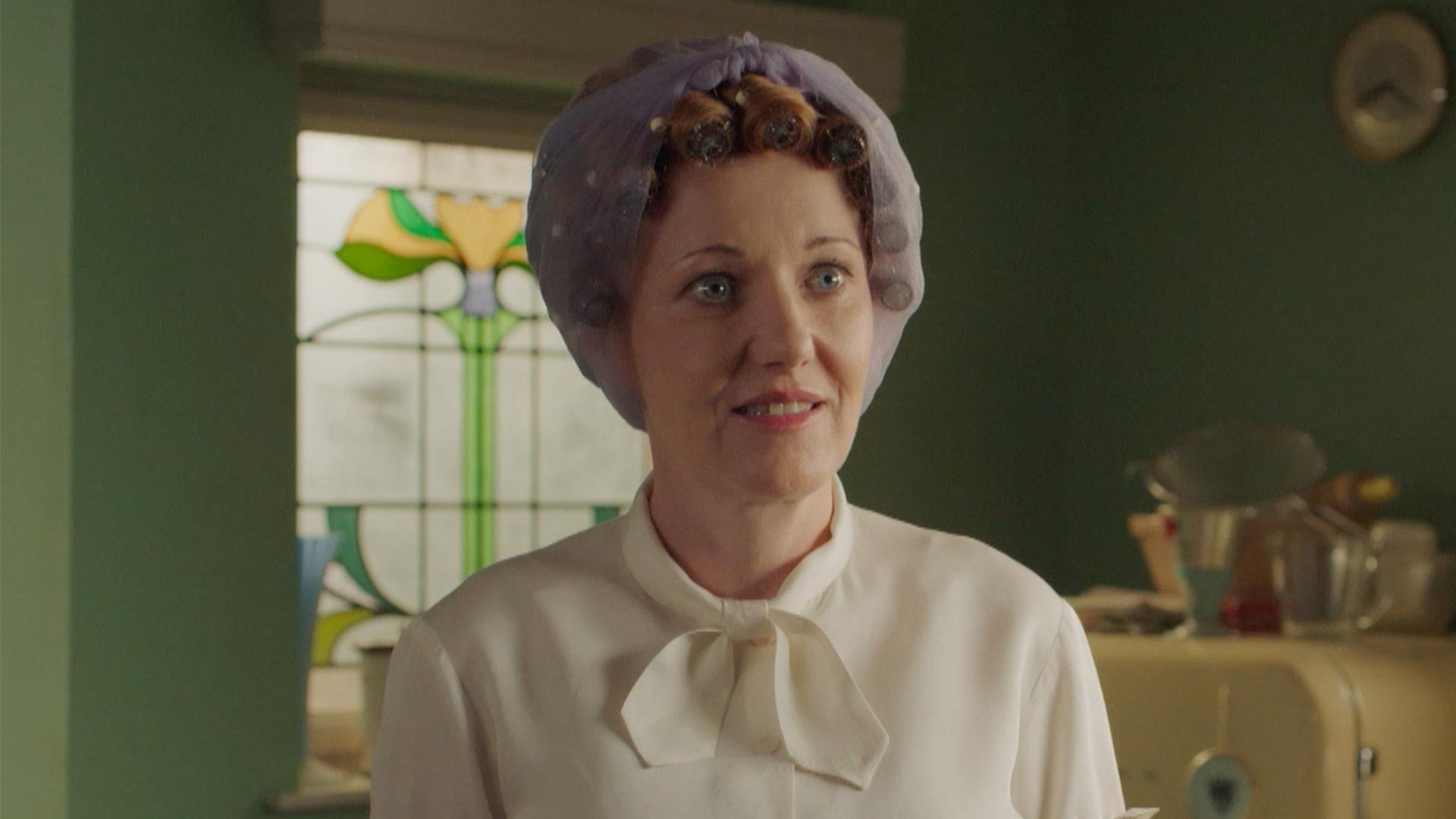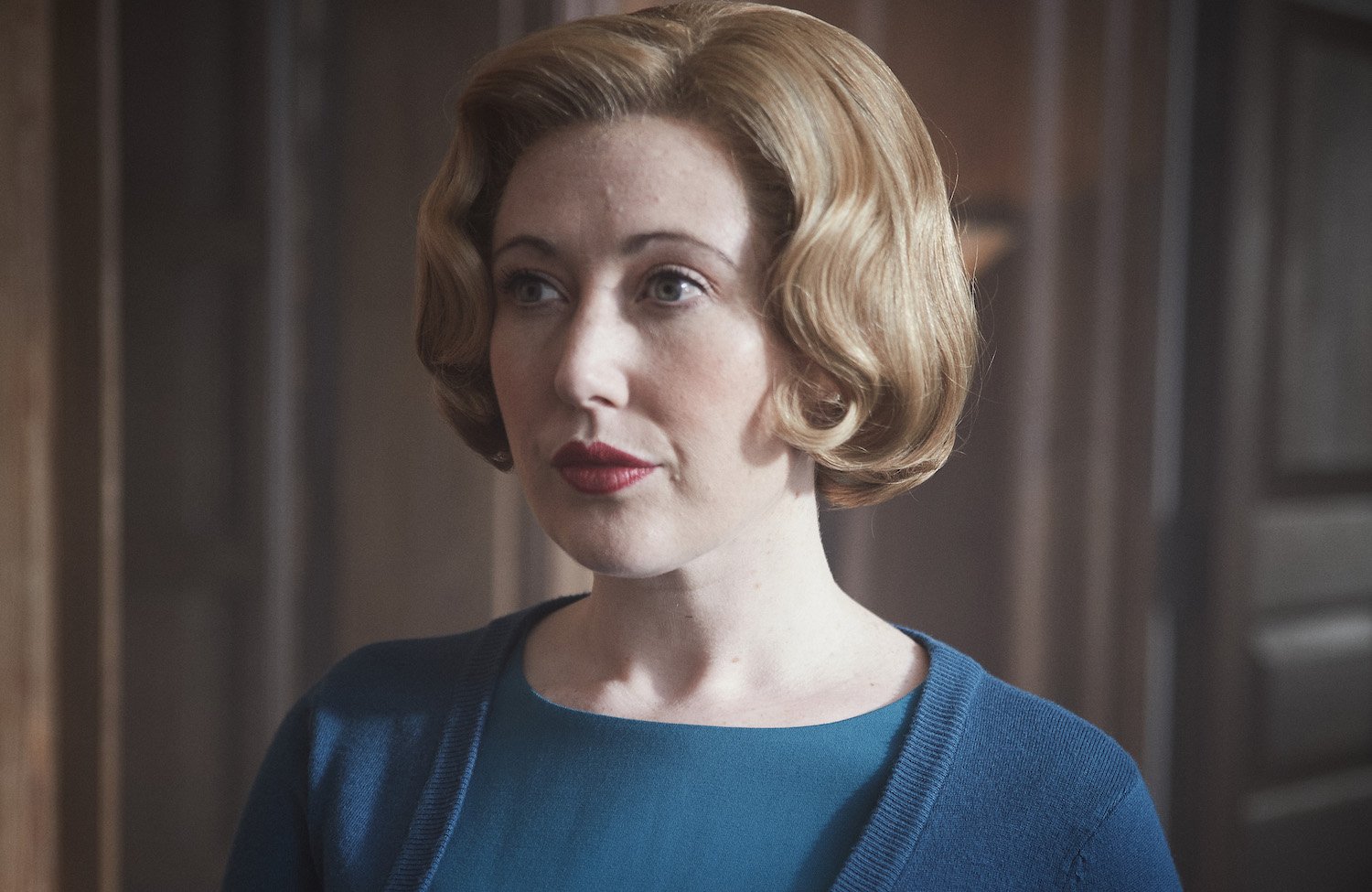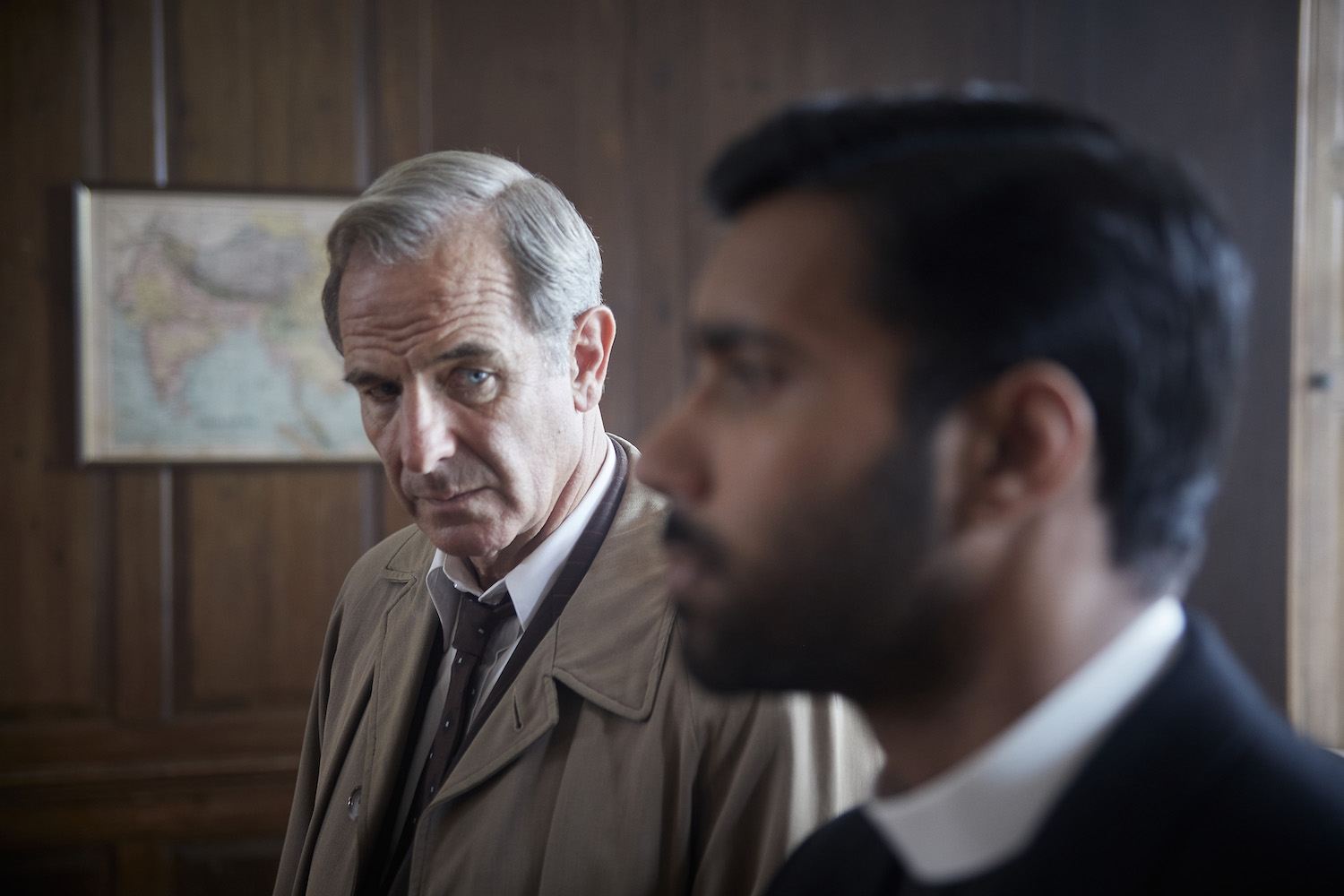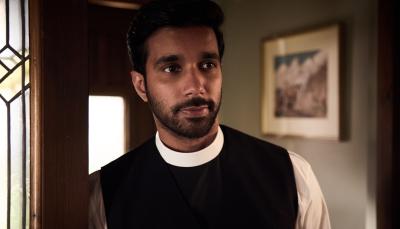The Series' Women Take Center Stage As 'Grantchester' Season 9 Continues
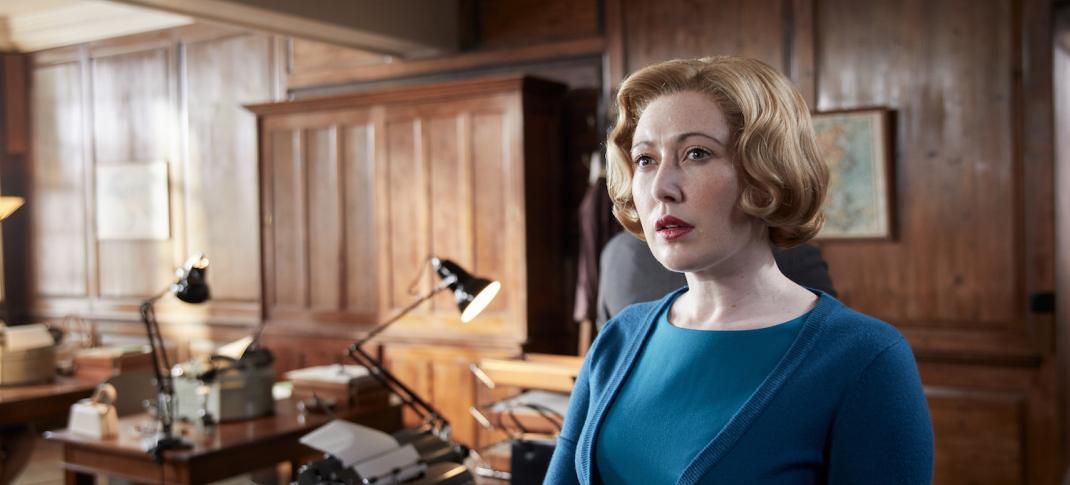
Melissa Johns in "Grantchester" Season 9
(Photo: Kudos/ITV/Masterpiece)
Grantchester may be a series that has evolved into an ensemble piece, but it's always been a show predominantly about men. It has its share of entertaining female characters: vicarage caretaker Mrs. C, Geordie's wife Cathy, and police secretary Miss Scott; however, the show's primary focus has always revolved around the police detective and the vicar at its center. Whether solving crimes or building a friendship, almost every episode of the series focuses on that specific male bond. Though there are plenty of secondary plots to enjoy, they all very definitively take a back seat to whatever's going on with Geordie and some combination of Sydney/Will/Alphy.... until now.
Like the episode where Geordie and Leonard teamed up in Season 4, this week's episode's change of focus is due to Grantchester Season 9 currently existing in the liminal space between figuring out what the Alphy Kotteram era is supposed to be and how he and Geordie will relate to one another. Much like that one-off Season 4 episode, this week's end result is one of the show's most exciting installments in years. It is its first genuine female-forward episode, an hour that puts the series' women front and center and frames its central mystery around uniquely feminist themes.
Moreover, the episode succeeds because it effortlessly builds on character beats and emotional arcs that have been bubbling underneath the series' surface for a long time. From Cathy's own experiences with predatory men in the workplace to her increasingly fraught relationship with her eldest daughter as the pair navigate the realities of growing up, this is an hour whose dramatic tension is driven by the lived realities of the women at its center.
Cathy's resistance to her daughter Esme's decision to quit school and get a job has been well-documented this season, and their relationship has been fraught for weeks. But while Geordie and Esme have treated Cathy's feelings as an overreaction, this week is a good reminder that her fears are well-founded. Though it's clear that Esme loves her job and the freedom it offers her, it is equally apparent that her independence comes at a price.
Working at Harrison and Sons means Esme and the other girls like her must constantly navigate an unabashedly patriarchal world. Company policy insists that women should continually smile and charm but not be too tempting to the men around them. They must seek no credit or thanks for their work, avoid being too bossy to the men they're managing, and say nothing about how these corporate rules don't require male employees to adhere to anything similar. Instead, it's generally accepted that men can leer at their female coworkers constantly, openly catcall them, get handsy in the filing room, and play gross games that involve rating their physical appearances on a sexist scale that runs from Doris Day to Marilyn Monroe. Boys will be boys, you know!
Grantchester is surprisingly forthright about how reductive — and, quite frankly, gross — these attitudes are, using the murder of Esme's friend Mae to explore not just the uncomfortable compromises women must make simply to be allowed to work but the lingering trauma that often goes hand in hand with the act of trying to live in the world as a woman.
Let's not forget Cathy was the victim of sexual harassment (another Season 4 subplot), forced to suffer in silence while the career of a male colleague was prioritized over her safety. It isn't a new phenomenon, but watching history uncomfortably rhyme for the Keatings' daughter is pretty jarring. (It also goes a long way to explain Cathy's fears about Esme's job.) Thankfully, Grantchester understands this week won't be improved by a man swooping in to save the day, smartly centering around Miss Scott's involvement in the investigation rather than Geordie or Alphy's. Beyond Geordie getting furious over the prospect that Esme might be having sex, he and Kotteram are secondary characters, and this week is all the better for it.
Miss Scott has long been Grantchester's avatar for female empowerment. Intelligent, hard-working, and unapologetic about wanting different things in her life than marriage and children, she's one of the show's most modern and forward-looking characters. It's a delight to watch her get to play the role of chief investigator here, going undercover at Harrison's to find out what the other female employees know about Mae's death.
The way the men treat her is no less disgusting. However, the fact that Jennifer manages to expertly handle them — from cutting remarks to smooth deflections — in a way that doesn't require her to diminish herself is the closest this particular storyline can get to empowering, especially when the murderer turns out to be a woman who has so thoroughly internalized the idea that she's meant to clean up after the men around her.
(Let Miss Scott investigate more things! While we're at it, let's keep this budding mentorship between her and Esme going since she seems more like Jennifer than she does her mother.)
However, Alphy Kotteram doesn't get much focus again, a strange choice that keeps Grantchester's latest addition at such a determined arm's length from its audience. (His character learned that women do much thankless and often invisible work, which is not character growth as much as simply losing ignorance.) That refusal to dive deep into Alphy makes the sudden decision to have the bishop threaten the security of his job all the more bizarre.
In theory, there's a powerful story here: The bishop, wanting to consolidate several failing parishes to save money, conveniently hires a South Asian vicar just in time to scapegoat him for running a church that's already sinking into the ground. (What does that say about church hierarchy, its attitude toward those who are different or marginalized, or the fitness of the bishop himself to lead this particular diocesan flock?) Unfortunately, it all feels pointless because we already know that no matter how ugly and racist this behavior is, it's a move that ultimately isn't going to succeed.
Grantchester has already been renewed, which means Alphy's job will be fine because the series requires it. The other problem is we don't care enough about Alphy to invest in his job security beyond what the show's general premise requires. We still barely know him — and have almost no idea what kind of vicar he is, what drew him to the church, or what his relationships with his parishioners beyond Leonard and Mrs. C. will be like. We've seen him preach exactly once, and he's not exactly a person who wears his faith on his sleeve. Maybe Grantchester should start there rather than threaten the job we haven't even fully seen him perform yet.
All this feels like a narrative panic with no real purpose, something planted to force the season to run for eight episodes instead of six. Perhaps there's a greater purpose behind it, some major reveal we would otherwise not get. But right now, it's a bit like the second plot introduced halfway through a Netflix 13-episode season, which only had enough plot for six episodes.
Grantchester Season 9 continues with new episodes every Sunday at 9 p.m. ET on most PBS stations, the PBS app, and the PBS Masterpiece channel, and will air and stream weekly through August 4, 2024. All eight episodes are available as a binge for members on PBS Passport. As always, check your local streaming service/listings.

